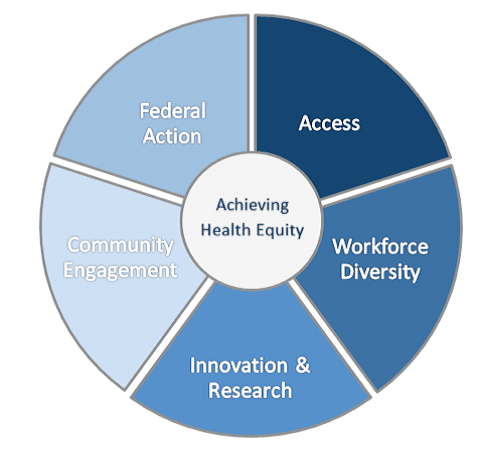Lupus Highlighted in New Congressional Report on Health Disparities

Sandra C. Raymond, President and CEO of the Lupus Foundation of America joined U.S. Representative Robin Kelly (D-IL), of Illinois’ 2nd Congressional District and Chair of the Congressional Black Caucus (CBC) Health Braintrust at an event Friday, September 18 to release official Congressional analysis of the state of African American health in the U.S. that offers a blueprint for reversing negative health trends in communities of color.
The report, entitled 2015 Kelly Report on Health Disparities in America, was released by the CBC Health Braintrust, one of Congress’s principal health care advisory task forces and the authority on African American and minority health disparities on Capitol Hill. The Braintrust is tasked with creating legislative and policy solutions to examine root causes and reduce the impact of health disparities, and promoting good health outcomes in multicultural communities — bringing together members of Congress, academia, and health reform advocates to provide a comprehensive set of legislative and policy recommendations to improve health outcomes in communities of color at the CBC Foundation’s Annual Legislative Conference.
The Kelly report is a call-to-action for Congress to make improved health outcomes in diverse communities a top priority. An article included in the Report contributed by the Lupus Foundation of America addresses health disparities experienced by people with lupus and describes current efforts to improve Lupus diagnosis and treatment in minority communities. Other contributors to the report include Congressional Black Caucus Chair G.K. Butterfield, National Urban League President & CEO Marc H. Morial, former U.S. Surgeon General David Satcher, and HHS Deputy Assistant Secretary for Minority Health Dr. J. Nadine Gracia.
Lupus (Systemic Lupus Erythematosus or SLE) is a severe, progressively disabling systemic and chronic autoimmune disorder of unknown etiology in which various cell types and immunological pathways become dysregulated, allowing the immune system to go awry and dysfunctionally produce antibodies to cells within the body that attack and destroy healthy tissue — causing pain, swelling and inflammation, and damage to joints, skin, blood, heart, the hematological system, brain, kidneys, lungs, bones, and nervous system.
RELATED: New Potential Lupus Drug Targets B Cell Receptor
Lupus primarily affects female persons of childbearing age (ie: between 20 to 40), and some ninety percent of people affected by Lupus are female African Americans. Women of color statistically two to three times more likely to develop Lupus than Caucasians, but men, children, teenagers and people of all races and ethnic groups can develop Lupus, which can progress into severe complications that make aggressive therapies obligatory. Lupus risk factors include exposure to sunlight, some prescription medications, infection with Epstein-Barr virus, and exposure to certain chemicals.
The Lupus Foundation of America estimates that based on its research, at least 1.5 million Americans have Lupus, but that the actual number may be as high as 2 million or more, since there have been no large-scale studies to determine the precise number of U.S. residents living with the disease. More than 16,000 new Lupus cases are reported annually across the country, representing a huge unmet medical need, with only one new Lupus treatment approved by the FDA in the past 50 years.
 “Lupus among racial and ethnic minority groups is a dramatic and significant public health problem that cries out for national attention and resources,” writes the Lupus Foundation’s Sandra Raymond in the report. “Without adequate and robust funding for biomedical research, progress into discovering, developing, and delivering new medications to people with lupus will continue to be delayed. The result will have a devastating impact on all people with lupus, especially members of the African American community who are at greatest risk for the disease.”
“Lupus among racial and ethnic minority groups is a dramatic and significant public health problem that cries out for national attention and resources,” writes the Lupus Foundation’s Sandra Raymond in the report. “Without adequate and robust funding for biomedical research, progress into discovering, developing, and delivering new medications to people with lupus will continue to be delayed. The result will have a devastating impact on all people with lupus, especially members of the African American community who are at greatest risk for the disease.”
 “I thank Sandra Raymond and the Lupus Foundation of America for their contribution to the 2015 Kelly Report,” said Congresswoman Kelly. “Now is the time to address this disease, which disproportionately impacts young African American women. The fact is that as many as 1 in 250 black women will get this disease. Black women have the highest rate of developing Lupus and are most likely to be diagnosed at a younger age than whites during childbearing years. As we continue the conversation about reducing health disparities and achieving health equity in a generation, curing lupus must be at the forefront in the discussion.”
“I thank Sandra Raymond and the Lupus Foundation of America for their contribution to the 2015 Kelly Report,” said Congresswoman Kelly. “Now is the time to address this disease, which disproportionately impacts young African American women. The fact is that as many as 1 in 250 black women will get this disease. Black women have the highest rate of developing Lupus and are most likely to be diagnosed at a younger age than whites during childbearing years. As we continue the conversation about reducing health disparities and achieving health equity in a generation, curing lupus must be at the forefront in the discussion.”
Lupus symptoms vary from one person to another, and the Foundation advises that in many cases, the best treatment approach will be provided by a health care team that can tailor treatment to the individual’s specific condition using a wide variety of medicines ranging in strength from mild to extremely strong. Prescribed medications will usually change during a person with lupus’s lifetime. However, the Foundation cautions that it can take months — sometimes years — before a health care team finds just the right combination of medicines to keep a patient’s Lupus symptoms under control.
The Lupus Foundation is currently working with the Centers for Disease Control and the National Association of Chronic Disease Directors to develop America’s first-ever National Public Health Agenda for Lupus. The agenda, to be released this fall, will specifically address health disparities and provide a broad public health approach to Lupus diagnosis, disease management, treatment and research, and serves as an overall blueprint for action in Lupus to help guide future policy, planning, advocacy, and action initiatives.
“The significance of lupus in the African American community can no longer be ignored, and it is clear there is much work to do to improve health equity among those who suffer from the disease,” says Ms. Raymond. “We must ensure patients and physicians are educated about lupus to help reduce the time to disease diagnosis, that patients are starting the correct treatments faster in order to limit organ damage and that patients are connected with valuable and culturally appropriate supports and services to help manage living with this cruel and mysterious disease.”
The Kelly Report outlines the grim state of Black Health in America in general, with African Americans facing higher rates of mortality than any other racial or ethnic group for eight of the top 10 causes of death. Inequities in health and healthcare in communities of color remain deep and persistent, spanning from cradle to grave, grimly evidenced by higher rates of chronic disease and premature death. “Many of the health disparities that exist are shaped by generations of cultural bias, injustice and inequality, Rep. Kelly says. “Despite the gains of the Affordable Care Act, we have much ground to cover in closing the health equity gap.”
To improve Black health outcomes, the Kelly Report proposes a five-point plan to reduce health disparities that focuses on Access, Workforce Diversity, Innovation and Research, Community Engagement and Federal Action on Healthcare. The five-point plan can be viewed here:
“The whole can only ever be as healthy as its parts, Rep. Kelly maintains. “For America to achieve true health equity, lawmakers, community leaders and public health stakeholders must come together to promote better health outcomes for diverse communities. Your ethnicity, zip code or bank balance should never determine your health, Kelly said. Though there are a number of challenges in addressing health disparities, there are also many opportunities to advance and achieve health equity. We all have a role to play in creating a healthier America and the Kelly Report is a contribution toward this critical effort.”
The full Kelly Report on Health Disparities in America can be viewed here.:
https://robinkelly.house.gov/sites/robinkelly.house.gov/files/2015 Kelly Report.pdf
Sources:
The Lupus Foundation of America
The Congressional Black Caucus Health Braintrust
U.S. Food and Drug Administration (FDA)
Centers for Disease Control
Image Credits:
The Lupus Foundation of America
U.S. Congress







